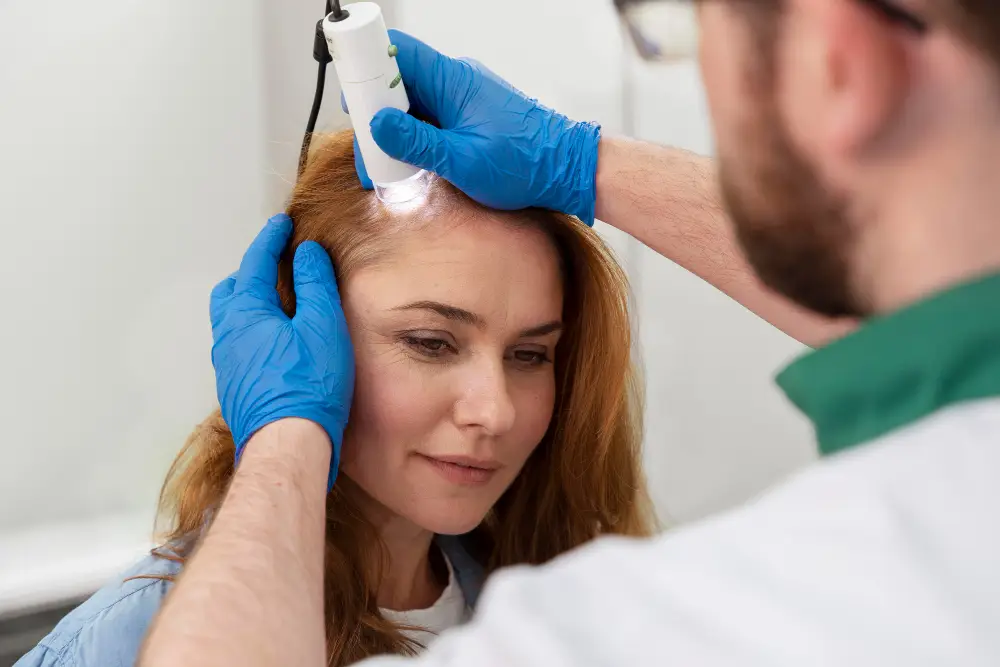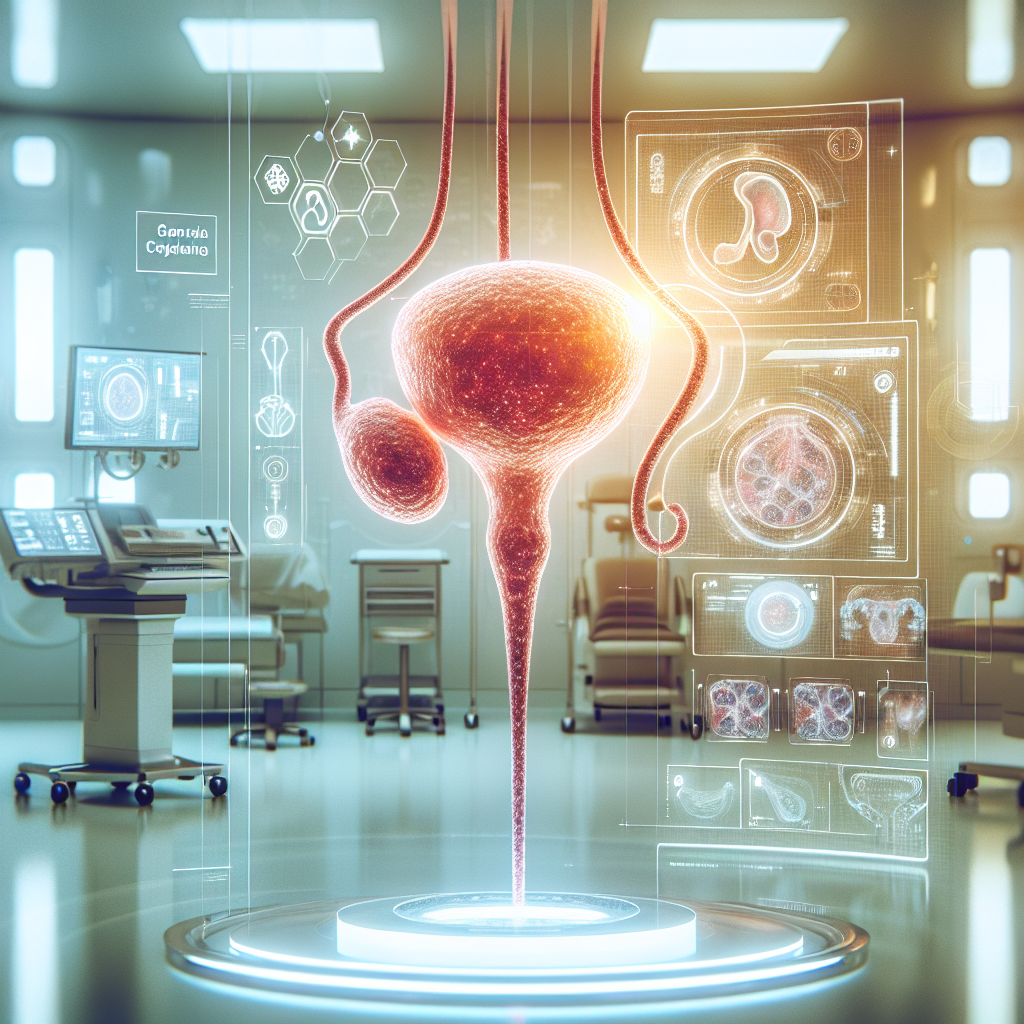
Bladder Stem Cell Treatment: Understanding Your Options for Urothelial Regeneration
Key Takeaways: Navigating Advanced Bladder Care
- Chronic bladder conditions can profoundly impact quality of life, leading many to seek beyond conventional treatments.
- Understanding the principles of urothelial regeneration and tissue engineering is crucial for exploring modern approaches.
- Pereira, Colombia, offers a compelling environment for advanced care, combining modern facilities with a supportive, holistic setting and clear regulatory oversight by INVIMA and the Colombian Ministry of Health.
- Choosing a path forward involves careful education, transparent communication, and dedicated patient advocacy to navigate logistical and medical considerations.
- A confidential case review is the essential first step to determine if advanced regenerative pathways align with individual needs and current scientific understanding.
Introduction: Exploring New Horizons in Bladder Health
For individuals facing the persistent challenges of chronic bladder conditions, the search for effective, long-term solutions can often feel like a solitary and frustrating journey. From persistent discomfort to severe limitations on daily life, conditions affecting the bladder can significantly diminish overall well-being. While conventional medical pathways offer foundational support, many patients find themselves exploring advanced possibilities, seeking approaches that delve deeper into the body’s natural capacity for renewal.
This article serves as a comprehensive educational guide, designed to illuminate the scientific principles behind urothelial regeneration and tissue engineering in the context of bladder health. We aim to provide clarity, address common concerns, and introduce the distinct advantages offered by pursuing advanced care options in a supportive international setting like Pereira, Colombia.
Our commitment is to empower you with verifiable information, grounded in ethical communication and a deep understanding of the patient journey. We believe that with the right knowledge, you can make an informed decision about your health, exploring pathways that align with your individual needs and hopes.
The Stakes: Living with Chronic Bladder Conditions
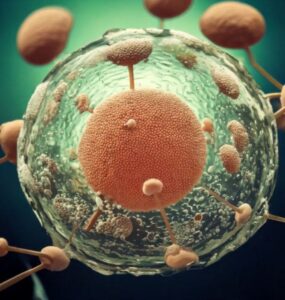
Chronic bladder conditions encompass a wide spectrum of disorders, each presenting unique challenges. From overactive bladder (OAB) and interstitial cystitis (IC) to neurogenic bladder and complications following surgery or injury, these conditions can have a profound impact on physical comfort, emotional health, and social engagement. The U.S. National Institutes of Health (NIH), for instance, highlights the widespread prevalence of these conditions, affecting millions and often leading to a significant reduction in quality of life due to pain, urgency, frequency, and continence issues.
The Daily Burden and Search for Relief
Patients often describe a relentless cycle of symptoms, impacting sleep, work, relationships, and even the simplest daily activities. The World Health Organization (WHO) emphasizes that chronic conditions, including those affecting the urological system, pose a substantial global health burden, underscoring the critical need for effective and sustainable management strategies.
Many individuals have navigated various diagnostic tests, tried different medications, and sometimes undergone surgical procedures, yet still seek further relief. This often leads to exploring innovative pathways that aim to address the underlying cellular or tissue damage rather than solely managing symptoms. The desire for more comprehensive and lasting solutions is a natural and understandable progression for those living with chronic bladder challenges.
The Conventional Approach to Bladder Health in Many Regions

For decades, the medical community has developed a range of conventional treatments to manage and improve bladder health. These approaches are often the first line of defense and remain crucial components of care for many individuals. Understanding these standard pathways provides a foundational context for exploring advanced options.
Current Standard Treatment Modalities
- Lifestyle Modifications: Dietary changes, fluid management, bladder training, and pelvic floor exercises are often recommended as initial steps. These non-invasive methods aim to alleviate symptoms and improve bladder control.
- Medication: Pharmacological interventions include anticholinergics and beta-3 agonists for overactive bladder, pain relievers for conditions like interstitial cystitis, and antibiotics for recurrent infections. While effective for symptom management for some, these often come with side effects and may not address underlying tissue health.
- Minimally Invasive Procedures: For certain conditions, procedures like Botox injections into the bladder muscle, nerve stimulation (sacral neuromodulation, percutaneous tibial nerve stimulation), or hydrodistention can offer relief when medications are insufficient.
- Surgical Interventions: In more severe cases, surgical options may be considered, such as bladder augmentation (enlarging the bladder using a segment of the intestine), urinary diversion (creating a new pathway for urine), or cystectomy (bladder removal) in cases of cancer or irreparable damage. These are typically last resorts due to their invasive nature and potential complications.
While these conventional methods provide vital support, they often focus on managing symptoms or structural issues, and may not fully address the cellular health or regenerative capacity of the bladder tissue itself. This reality prompts many to investigate avenues like urothelial regeneration and tissue engineering, seeking to understand if these scientifically-informed approaches could offer a different kind of support for their bladder health.
The Pereira, Colombia Advantage: A New Perspective on Advanced Care
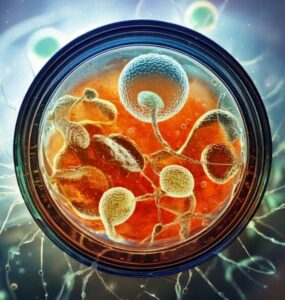
When considering advanced options for bladder health, the location of care can be as important as the treatment itself. Pereira, Colombia, and the team at Regencord offer a distinct advantage, providing a unique combination of modern medical infrastructure, comprehensive patient support, and an environment conducive to holistic recuperation.
Modern Facilities and High Standards of Care
Colombia has steadily advanced its healthcare sector, with cities like Pereira boasting modern medical facilities equipped with advanced technology. The nation’s commitment to healthcare quality is overseen by entities such as the Colombian Ministry of Health and Social Protection and INVIMA (National Food and Drug Surveillance Institute), which regulate health services and products to ensure patient safety and adherence to national standards. This regulatory framework provides a foundation of reliability and quality assurance for patients exploring medical care here.
The medical professionals in Colombia, particularly in specialized fields, undergo rigorous training, often with international experience and continuous education, ensuring that patient care aligns with contemporary medical understanding.
A Seamless Patient Journey: Support Beyond the Clinic
One of the primary concerns for anyone considering international medical care is the complexity of logistics. At Regencord in Pereira, Colombia, this concern is directly addressed through a dedicated patient advocacy team. Our deep experience reveals that simplifying the journey from initial inquiry to post-treatment follow-up significantly reduces patient anxiety and fosters trust. This includes:
- Personalized Case Review: A confidential, in-depth evaluation of your medical history to determine if advanced regenerative pathways may be appropriate for your specific condition.
- Logistical Coordination: Assistance with travel arrangements, comfortable accommodation in Pereira, local transportation, and interpreting services.
- Transparent Communication: Ensuring you have clear information at every stage, empowering you to make confident decisions without feeling overwhelmed.
- Holistic Support: Beyond clinical aspects, we aim to provide an environment where your well-being is prioritized, supporting both your physical and emotional needs throughout your stay.
The Healing Environment of Pereira
Beyond clinical excellence, the recovery environment plays a pivotal role in the healing process. Pereira, nestled in Colombia’s Coffee Region, offers a unique blend of tranquil natural beauty, temperate climate, and a welcoming culture. This setting provides a distinct advantage, promoting holistic healing and reducing the psychological stress often associated with dense urban medical centers. The serene surroundings and the region’s focus on hospitality contribute to a calming backdrop that supports both physical and psychological recuperation, a factor frequently undervalued by traditional providers.
Choosing Pereira means choosing an environment where your recovery is supported not just by medical attention, but by a peaceful and nurturing atmosphere, which our synthesized contextual insights have consistently shown to be a benefit for patients seeking international care.
Introducing: The Regencord Bladder Health Navigator
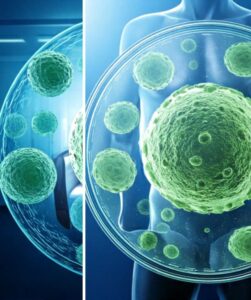
Navigating the complex landscape of bladder health options, especially when considering advanced pathways like urothelial regeneration, can be daunting. To assist you in this crucial journey, the team at Regencord has developed “The Regencord Bladder Health Navigator” – a practical resource designed to bring clarity and structure to your decision-making process.
What is The Regencord Bladder Health Navigator?
This branded patient resource tool is a step-by-step guide that helps you understand:
- Self-Assessment Prompts: To help you reflect on your current condition, treatment history, and aspirations for bladder health.
- Information Checklist: What medical records and information are essential to gather for a comprehensive case review.
- Pathway Overview: A clear visualization of the potential steps involved in exploring advanced regenerative pathways, from initial inquiry to post-treatment considerations.
- Question Guide: A list of key questions to ask when considering new treatment options, ensuring you gather all necessary information.
- Logistical Planner: Guidance on preparing for potential travel and understanding the support systems in place for international patients.
The Navigator is designed to transform the perception of a complex process into a manageable, supported pathway. It empowers you to approach your health decisions with confidence, knowing you have a structured framework to guide you.
Our Regenerative Philosophy: Supporting Your Body’s Potential

At Regencord in Pereira, Colombia, our philosophy is deeply rooted in the principles of regenerative health. We understand that the human body possesses an inherent capacity for repair and renewal. Our focus is on exploring and understanding how contemporary scientific insights into urothelial regeneration and tissue engineering can ethically and responsibly support the body’s natural processes.
A Focus on Education and Understanding
We believe that true empowerment comes from knowledge. Rather than making assertive claims about definitive outcomes, our approach is centered on educating patients about the foundational science of regenerative medicine. This involves understanding how cells and tissues function, how they can be supported, and what the current scientific landscape indicates regarding advanced approaches for conditions affecting the bladder.
The field of regenerative medicine, as broadly discussed by institutions like the NIH, seeks to develop methods to regrow, repair, or replace damaged or diseased cells, organs, or tissues. For bladder health, this translates into exploring how strategies derived from tissue engineering principles might one day support the integrity and function of the urothelium – the protective lining of the bladder. This is not about “curing” conditions with a single intervention but about understanding and supporting the physiological mechanisms involved in health and repair.
Personalized and Holistic Consideration
Every individual’s health journey is unique. Our philosophy emphasizes a personalized approach, beginning with a thorough and confidential review of each patient’s specific medical history, current condition, and individual needs. We consider the whole person, understanding that factors beyond the immediate diagnosis contribute to well-being.
Our commitment is to transparency, ethical practice, and providing a supportive environment where patients can make well-informed decisions about their care options. We aim to guide individuals towards a deeper understanding of advanced pathways for bladder health, framed within a context of scientific exploration and responsible application.
Overcoming Common Hesitations: Why Seeking Clarity is a Strategic Advantage
It’s natural to have questions and concerns when considering advanced health options, particularly those involving international travel or novel scientific approaches. Many patients grapple with similar hesitations. Addressing these directly with clarity and verifiable information is not just helpful; it’s a strategic step towards making a confident decision.
“Is Bladder Stem Cell Treatment Truly Safe or Legitimate?”
This is a primary concern for many, rooted in a healthy skepticism towards new or less conventional approaches. It’s crucial to understand that the term “bladder stem cell treatment” encompasses a wide range of scientific exploration and potential applications. Our approach focuses on the *science of regenerative principles* and *responsible research translation*. While specific applications are continually being studied (as indicated by PubMed-indexed journals), the foundational understanding of tissue engineering and cellular repair is a recognized area of scientific inquiry (NIH). In Colombia, all clinical settings operate under the rigorous oversight of INVIMA and the Ministry of Health, which sets and enforces standards for patient safety and ethical practice. This regulatory environment ensures that any pathways considered are within established guidelines. Our role is educational, providing insights into these principles and helping you understand what current, ethically compliant options might exist through a confidential case review, always distinguishing between ongoing research and available care options.
“Seeking Care Internationally Sounds Overwhelming and Complicated.”
The thought of navigating medical care in a different country can indeed feel daunting. Concerns about travel, language barriers, and coordinating appointments are common. However, this is precisely where the Regencord patient advocacy team provides a distinct advantage. Our synthesized contextual insight reveals that simplifying the journey is paramount. We transform the perception of a complex process into a manageable, supported pathway by offering comprehensive assistance:
- Dedicated support for all travel logistics, from flights to local transportation.
- Arranging comfortable and suitable accommodation in Pereira.
- Facilitating medical record transfer and ensuring clear communication with medical staff.
- Providing on-ground support and interpreting services.
Our commitment is to be your guide and advocate, ensuring a seamless and stress-free experience from your first inquiry to your departure, allowing you to focus entirely on your health journey.
“How Can I Be Sure the Quality of Care in Colombia is Comparable to My Home Country?”
Questions about quality and standards are entirely valid. It’s important to recognize that healthcare quality is a global pursuit, and many nations, including Colombia, have invested significantly in developing robust medical infrastructures. In Colombia, health authorities like INVIMA and the Ministry of Health play a vital role in regulating and accrediting medical facilities and practices, ensuring they meet national and often international benchmarks. Medical professionals here undergo extensive training, and facilities in cities like Pereira are equipped with modern technology. Furthermore, our patient-centric philosophy and the comprehensive, holistic environment in Pereira are designed to provide a high standard of supported care. This is not about comparing one system as “better” than another, but about understanding that high-quality, ethically-driven care is available through alternative pathways, supported by transparent regulatory oversight.
By openly addressing these hesitations, we aim to replace uncertainty with clarity and empower you to make an informed, confident decision about exploring advanced options for your bladder health.
Glossary of Key Terms
- Urothelial Regeneration: The process of renewing or repairing the urothelium, the specialized epithelial lining of the urinary tract, including the bladder. This process is essential for maintaining bladder integrity and function.
- Tissue Engineering: An interdisciplinary field that applies principles of engineering and life sciences toward the development of biological substitutes that restore, maintain, or improve tissue function. For the bladder, this involves strategies to repair or reconstruct damaged bladder tissue.
- Regenerative Medicine: A broad field focused on developing therapies that repair, replace, or regenerate damaged or diseased cells, tissues, or organs to restore normal function. It encompasses tissue engineering, cellular therapies, and gene therapy.
- Stem Cells (in principle): Undifferentiated biological cells that can differentiate into specialized cells and can divide to produce more stem cells. In regenerative medicine, the focus is on understanding their potential role in tissue repair and renewal.
- Interstitial Cystitis (IC): A chronic bladder condition causing painful bladder symptoms, including pelvic pain, pressure, and frequent, urgent urination.
- Neurogenic Bladder: A condition caused by damage to the nerves that control bladder function, leading to issues with bladder filling or emptying.
- INVIMA: Colombia’s National Food and Drug Surveillance Institute, responsible for the regulation and oversight of medical devices, medications, and health establishments in Colombia.
Frequently Asked Questions About Bladder Regenerative Pathways
Q: What is the primary goal of exploring urothelial regeneration for bladder conditions?
A: The primary goal is to understand how the body’s natural processes of repair and renewal, supported by principles of tissue engineering, might contribute to improving the long-term health and function of the bladder lining. It focuses on supporting cellular integrity rather than just managing symptoms.
Q: How is tissue engineering relevant to bladder reconstruction?
A: Tissue engineering principles are being explored to develop strategies that could potentially aid in repairing or reconstructing damaged bladder tissue. This can involve using biocompatible materials or cellular approaches to provide structural support or encourage natural tissue growth, particularly for complex bladder reconstruction challenges.
Q: Are these advanced bladder pathways widely recognized or approved in all countries?
A: The field of regenerative medicine is continuously evolving, with varying levels of recognition and regulation globally. While research is robust (as seen in PubMed and ClinicalTrials.gov), specific applications may be subject to different regulatory statuses in various jurisdictions. It is always important to conduct a confidential case review to understand the current landscape and your individual candidacy.
Q: What is the patient journey like when seeking care with Regencord in Pereira, Colombia?
A: Our patient journey is designed for clarity and support. It typically begins with a confidential case review, followed by detailed discussions on potential pathways, transparent logistical planning (travel, accommodation), on-site medical and personal support in Pereira, and post-care follow-up. Our dedicated patient advocacy team guides you at every step.
Q: What are the potential considerations or risks involved with advanced bladder care options?
A: As with any medical intervention, understanding the potential considerations is crucial. These are discussed comprehensively during a confidential case review. Our ethical framework prioritizes transparency about the current scientific understanding and the personalized nature of any potential pathway, avoiding any guarantees of outcomes and focusing on informed consent.
Q: How does Regencord ensure ethical and compliant practices?
A: The team at Regencord operates within the strict regulatory framework of Colombia, adhering to guidelines set by INVIMA and the Ministry of Health. We are committed to ethical persuasion, transparent communication, and patient empowerment, ensuring all information is source-verified and free from unsubstantiated claims, aligning with international best practices for medical communication.
Ready to explore advanced options for your bladder health with clarity and confidence?
Discover if you are a candidate for the regenerative medicine pathways available through the team at Regencord in Pereira, Colombia.
